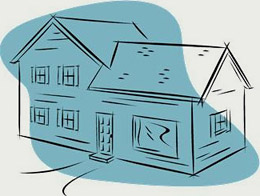
Radon health risks in the home - mini quiz
Posted in Healthy Home & Garden on February 24, 2013. Last modified on April 21, 2019. Read disclaimer.
Radon - you can't hear it, you can't smell it and you can't taste it -- but it is everywhere in the air. Unfortunately, as many as 7.1 million American homes contain dangerously high levels of radon resulting in an estimated 21,000 deaths per year. This makes radon the second leading cause of lung cancer, behind smoking (and the leading cause of lung cancer among non-smokers.) And for people who smoke, being exposed to elevated radon levels is especially problematic.
+ Free Shipping & Returns on Eligible Items.
(*Amazon's Top 100 list updated hourly.)
The following radon mini quiz can help you learn more about radon and determine if it's something you should be concerned about.

 How to prepare if you have pets and are going to have a baby
How to prepare if you have pets and are going to have a baby Tips for battling afternoon fatigue
Tips for battling afternoon fatigue Organic Gardening infographic
Organic Gardening infographic Tools for determining your risk of disease
Tools for determining your risk of disease Getting a jumpstart on spring gardening
Getting a jumpstart on spring gardening Fall gardening tips and tricks
Fall gardening tips and tricks Composting kitchen and yard scraps
Composting kitchen and yard scraps How music and laughter can effect our health
How music and laughter can effect our health Simple to build, Do It Yourself standup desk
Simple to build, Do It Yourself standup desk Steps for keeping your eyesight healthy as you age
Steps for keeping your eyesight healthy as you age Guide to growing purple sweet potatoes
Guide to growing purple sweet potatoes What's radon in the home and why should I be concerned
What's radon in the home and why should I be concerned Simple and healthy smoothie recipes
Simple and healthy smoothie recipes What you can do to keep your Immune System strong
What you can do to keep your Immune System strong Gardener's guide to growing strawberries
Gardener's guide to growing strawberries Causes of stress and how to deal with it
Causes of stress and how to deal with it Poisonous plants in your home and garden
Poisonous plants in your home and garden